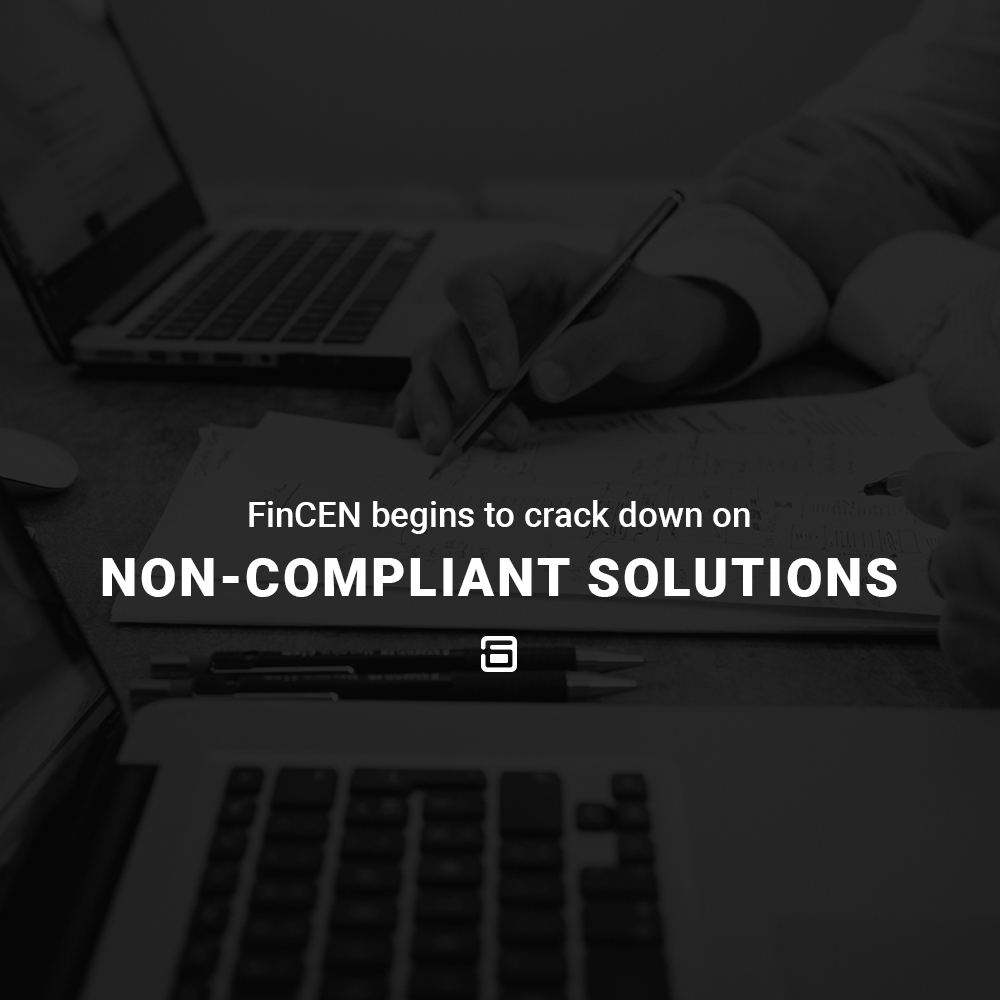New FinCen Guidance Classifies CVC Processors as MSBs
by Alt Thirty Six / May 22, 2019 8:12:30 AM

FinCEN’s New Rules for Virtual Currencies
A few weeks ago FinCEN released its new regulations on Convertible Virtual Currencies (CVCs), confirming what many in the industry had long expected: Even though CVCs don’t share all attributes of “real” or fiat currency, businesses that control and transmit CVCs are still bound by the Money Transmission laws and are obligated to follow BSA regulations.
Any business using CVCs for payment processing should stay well-informed of the revised regulatory requirements, so here are some key takeaways from the 30-pages of new regulations.
What old regulations meant
Previously FinCEN had identified three types of participants in virtual currencies arrangements: users, exchangers and administrators. Exchangers and administrators were classified as money transmitters because they exchange fiat and virtual currencies, and/or issue new virtual currencies. Users were exempted from being designated as Money Transmitters and spared from the registration, reporting and record-keeping requirements imposed on Money Transmitters.
What new regulations mean
The new guidelines classify seven new types of business models that qualify as money transmission activities. Examples of newly designated money transmission activities include: P2P exchanging, CVC payment processing and operating CVC kiosks.
Meanwhile, exemptions still apply to many business models involved in CVCs (such as ICO fundraising, tumbling and mixing software developers). The 2019 guidelines have been a long time in the making and culminate several trends in FinCEN’s regulatory attitude towards CVCs. Since releasing their debut guidelines, FinCEN has issued numerous legal analyses and rulings clarifying which business activities qualify as money transmitting.
Unfortunately, many CVC payment processors in the market today aren’t as concerned with compliance as they should be. Several leading payment processors using CVCs take broad, errant interpretations of money transmission exemption clauses. But at the end of the day, FinCEN’s classifications are determined by facts and circumstances, and many of these leaders will fail to remain compliant.
Alt Thirty Six:
- Remains registered with FinCEN as a Money Services Business and has obtained money transmission licensing or exemptions in all states in which we currently operate.
- Currently retains a multinational law firm specializing in Blockchain and Money Transmission regulations known for providing counsel to many of the top VC exchanges in the world
- Employs a robust AML/BSA program along with a closed-loop system, granting regulators transparency into both sides of legal cannabis transactions.
- Pioneered the CVC industry, exceeding all federal and state regulatory requirements.